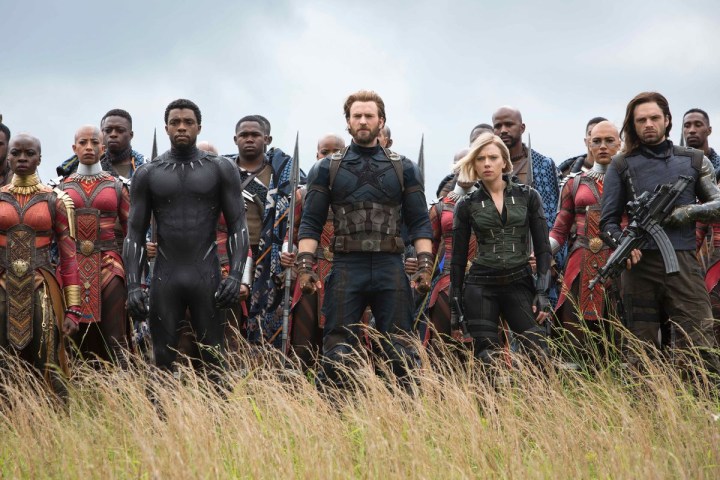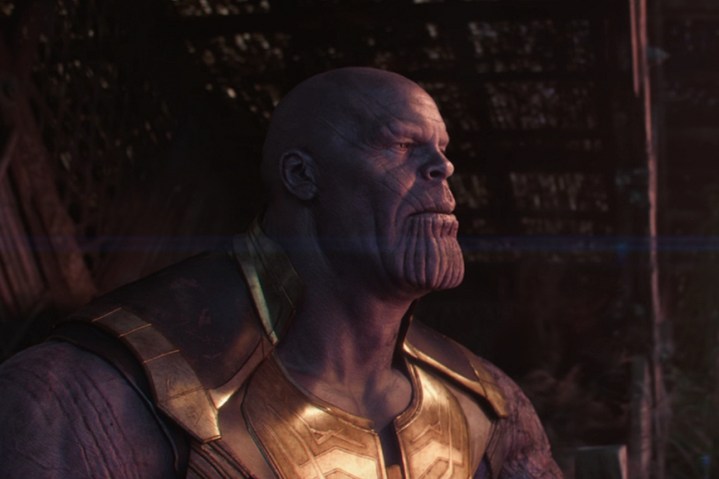Anyone who has kept up with the Marvel Cinematic Universe will know that it has definitely seen better days.
In recent years, the franchise that once dominated Hollywood has struggled to maintain the stranglehold it used to have over the theatrical market. Part of that has been due to Marvel’s increased focus on its Disney+ originals, which have greatly expanded the MCU’s roster of characters and made the franchise’s feature outings feel increasingly less important. Of course, another part of the MCU’s diminished importance is due to the franchise’s consistently shoddy visual effects and overly familiar storytelling tropes, most of which have been written about at great length over the course of the past three years or so.
The MCU’s current struggles may make the days in which it was widely beloved seem like a distant memory. However, today only marks the five-year anniversary of Avengers: Infinity War, which first hit theaters back in 2018. The film kicked off the conclusion of the MCU’s 11-year-long Infinity Saga and did so by hitting audiences with a cliffhanger ending that left them salivating for nearly a full year to see its resolution.
Five years later, Avengers: Infinity War’s decidedly unhappy ending not only seems like an even more brilliant creative gamble on the part of Marvel Studios, but also reveals exactly what has been missing from so many of the MCU’s recent efforts.
A successful subversion

Unless you’ve been living under a rock for five years, you likely know what happens at the end of Avengers: Infinity War. The Russo Brothers-directed film delivers on the promise of its 2012 predecessor, The Avengers, by finally having Thanos (Josh Brolin) come to blows with Earth’s Mightiest Heroes. Unfortunately for the latter group, Thanos wipes the floor with most of them without even breaking a sweat. Consequently, the closing moments of Infinity War see Thanos successfully acquire all of the six Infinity Stones and use them to achieve his lifelong goal of erasing half of the galaxy’s living beings from existence.
The film’s final montage, which shows most of the MCU’s established heroes turning into clouds of dust before their friends’ eyes, left audiences reeling. Everyone seemed to leave the theater in 2018 asking the same thing: How on Earth will the Avengers not only defeat Thanos, but also bring their fallen allies back to life? Viewers knew that they’d find out the answers to those questions when Marvel’s promised fourth Avengers film hit theaters in a year, but that didn’t diminish their desperation to see the resolution to what was easily the most unsatisfying conclusion of any MCU movie to date.

And that’s where the brilliance of Avengers: Infinity War lies. Aside from the film’s other accomplishments, which include moments with Captain America (Chris Evans) and Thor (Chris Hemsworth) that rank among the MCU’s most rousing, Infinity War’s ending is a brilliant bit of audience manipulation. After spending years telling familiar, largely safe superhero stories, the MCU wielded the comfort that audiences had come to expect from it against them. It used their emotional investment in characters like Wanda Maximoff (Elizabeth Olsen) and Peter Parker (Tom Holland) to create a yearlong desire to see them avenged.
Not only did Infinity War’s conclusion turn 2019’s Avengers: Endgame into a can’t-miss event for moviegoers around the world, but it also elevated the two middle-of-the-road MCU installments that were released in between those films, Ant-Man and the Wasp and Captain Marvel, to greater financial success than they might have otherwise achieved. Those films were, in specific, perceived as being more important than they actually were simply because they were coming after the greatest cliffhanger in the history of the MCU.
The diminished state of the MCU

It is worth mentioning that Avengers: Infinity War wouldn’t be as well-remembered today if Endgame hadn’t delivered such a surprisingly bittersweet resolution to the story arc. In the years since those films were released, though, Marvel has repeatedly struggled to demonstrate the same level of audience awareness or storytelling prowess that made Infinity War and Endgame such impactful pop cultural events. As a matter of fact, Marvel has released a total of 19 film and TV projects over the course of the past three years, but few of them have felt as invested in their characters or stories as the movies that actually built the MCU into what it is today.
The multimedia franchise has felt increasingly torn between its blockbuster, spectacle-driven impulses and the needs of its characters, and that tension has led to more misfires in just the past three years than the MCU delivered in its first 10. Of course, the twist at the end of Avengers: Infinity War wouldn’t have worked at all if audiences weren’t as invested in the lives of the heroes who died in that film as they were in the MCU’s overarching plot. Despite that fact, many of Marvel’s more recent titles have either been consumed entirely with setting up the plot of the MCU’s new Multiverse Saga (see: Ant-Man and the Wasp: Quantumania) or been so small and disconnected from the rest of the franchise that they’ve felt irrelevant (see: Moon Knight).
Over the past three years, Marvel has only once managed to achieve the same level of interconnected, emotionally driven storytelling that used to define the MCU. That was when Marvel spent an entire season of WandaVision setting up Wanda Maximoff’s personal story and then ended it with the promise that her journey would be continued in 2022’s Doctor Strange in the Multiverse of Madness. As messy as it was, that film, notably, went on to earn nearly $1 billion at the box office.
Can Marvel do it again? With two new Avengers movies on the horizon, the studio certainly hopes so. But unlike the first time, not as many people are invested in the fates of the Eternals, Shuri’s Black Panther, or She-Hulk as they were with Captain America, Iron Man, and Thor. To replicate the success of Infinity War, plenty of work still needs to be done by Marvel to make audiences care more about the characters onscreen than whatever plot machinations (variants! multiple timelines! microverses!) and cheap fan service (all those X-Men allusions that go nowhere) that the MCU is currently obsessed with.
Avengers: Infinity War is available to stream now on Disney+.



